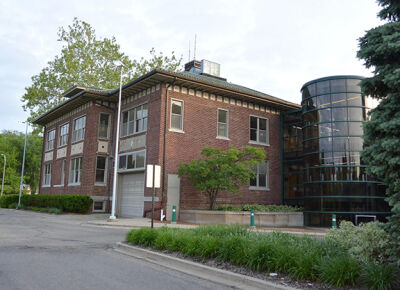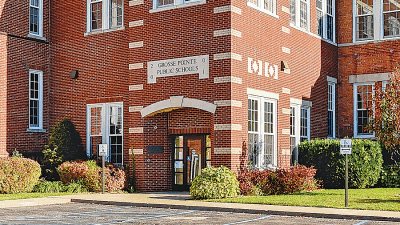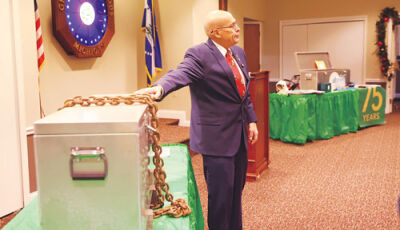GROSSE POINTE PARK — Grosse Pointe Park’s extreme emergency relief valve project, or EERV, is going to cost a lot more than engineers originally anticipated.
Due to increased costs for materials and labor, what had been expected to be a nearly $2 million endeavor is now closer to $3 million. During a special meeting April 6, the Park City Council unanimously approved a low bid of $2,772,108.40 from L. D’Agostini and Sons.
“We did receive four bids,” Assistant City Manager Warren Rothe said. “It was a competitive bid project.”
City Engineer Patrick Droze, of OHM, said they received “favorable references” for L. D’Agostini and Sons, and OHM is currently working with the company on another project.
A gift from the Cotton family — mother Shery and sons Sean and Jon — saved the day for the city. Mayor Michele Hodges said the Cottons donated $900,000 to the city to cover the entire amount of the cost overrun.
During the special meeting, the council voted unanimously to accept the donation. City Councilman Max Wiener said the gift is “going directly to the EERV” but needs to be put into the city’s water and sewer fund, from which payments for the EERV project will be made.
“It’s extraordinary we have people willing to support (this),” Wiener said.
It was a sentiment echoed by other city officials, including Hodges.
“I think our Cotton family … has been an exceptional partner,” Hodges said. “It’s a testament to what a public-private partnership can do.”
An EERV, which some other communities have, enables communities to discharge sewage into a body of water under specific circumstances but requires state approval to be implemented.
Wiener recalled the “catastrophic storm” that hit the area in June 2021 — calculated as a 1,000-plus year storm. He said it resulted in “tens of millions (of dollars in) damage to the residents of Grosse Pointe Park.”
In addition, Wiener noted the large impact the resulting devastation had on the environment, as hundreds of garbage trucks rolled through the community daily and towering piles of ruined personal belongings — including major appliances — were hauled away to landfills.
Park officials have long explored the possibility of having an EERV for major storms that might result in basement flooding, but it is only now something they have been able to secure.
“This is an insurance policy,” Wiener said. “We have been extremely focused and diligent in trying to dry out our (sewer) system.”
He added that these efforts to dry out the system are ongoing.
“We will do everything we can to try to make sure we never have to use this system,” Wiener said. “But due to the (risk) to residents, we’re going to have this fail-safe.”
In the meantime, city officials ask residents to do their part to prevent future flooding and basement backups. Hodges asked residents to continue to disconnect their downspouts from the sanitary sewer system. Downspout disconnection is required by city ordinance wherever possible. According to information on the Park’s website, a 1,500-square-foot home can take 25,000 gallons of water annually out of the sewer system just by disconnecting its downspouts.
Work on the EERV is expected to start in mid-to-late July and will take roughly eight weeks, Wiener said. The valve is being installed at Patterson Park. Wiener said the park will remain open during the project, but there will be a period of approximately two to three days during which the park driveway won’t be accessible.
Droze said the contractor will work as quickly as possible to minimize any disruptions.
 Publication select ▼
Publication select ▼




















